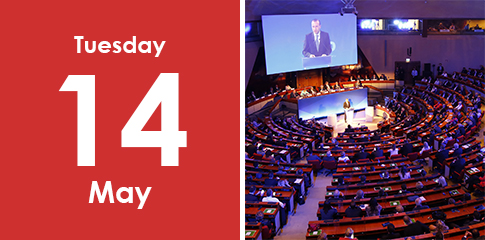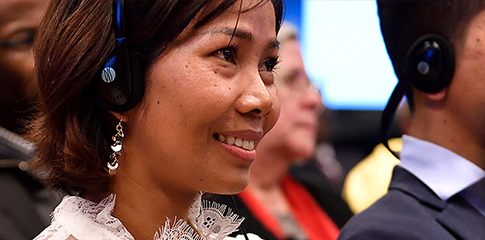Insecurity remains one of the prominent challenges facing communities occupying the borderlands in Africa. In the horn of Africa, most of these communities adopted pastoral lifestyle years back as an adaptation to climate change. Unpredictable rainfall patterns have affected their access to water and pasture, critical for their livelihood. As a result, these communities often find themselves in confrontation with other communities who have the same interests. This naturally creates competition on access, utilisation and where possible ownership of resources.
One would expect that the advent of independence from colonial administrations in the 1950s and 1960s would set in an atmosphere of mutual interest in negotiating approaches towards sustainable solutions on resource sharing. However, this has not been an easy journey for both independent nations and borderland communities whose allegiance to the state authority has in most cases been fragile.
Recent events such as the infestation of the borderlands by groups promoting Violent Extremisms in Africa (Al Qaeda in North Africa, Al -Shabab in the horn of Africa, and Boko Haram in West Africa) have served to increase this fragility as these illegal formations gain ground. As a consequence, there has been an increase in:
- Insecurity – militarisation of communities, arms trade, displacement of populations, loss of livelihoods and reported cases of crime
- Disinterest from potential investors
- Levels of poverty and illiteracy
- Transboundary human and livestock diseases
Towards a Sustainable Solution Through Regional and Bi-lateral Cooperation Initiatives
During the last decade, nations in Africa improved economic and diplomatic ties through both bi-lateral and multi-lateral initiatives. The objective of these measures is often to improve movement of persons and goods across borders and have a positive impact on social and economic wellbeing of communities in the borderlands and beyond.
The Africa Union has been on the forefront in promoting such cooperation. The Niamey Convention on Cross Border Cooperation (adopted in June 2014) established the framework through which states could negotiate and put in place such cooperation arrangements.
Informed by the above, Regional Economic Communities (RECs) such as the East African Community (EAC) and the Inter-Governmental Authority on Development (IGAD) set out in turn to implement cooperation within their respective areas of influence. For instance, IGAD established and operationalised protocols on Conflict Early Warning and Early Response, Animal Health, and is currently working on a transhumance protocol to facilitate ease of movement for persons and goods.
With the support from the European Union Trust Fund (EUTF), Kenya, Ethiopia and Somalia have benefitted from projects aimed at improving livelihoods, popularising existing cross-border agreements, and establishing frameworks for cross-border cooperation and collaboration.
Kenya – Uganda Bilateral Cross Border MoU
Context
The Pokot and Turkana (in Kenya) and the Karamojong (a Cluster of Pastoral ethnic groups including the Tepeth, Jie, Dodoth, and Matheniko, all on the Ugandan side of the border)have over the years experienced insecurity linked to cattle rustling. Sporadic revenge attacks and competition over dwindling natural resources have often resulted in violent conflicts. In addition, harsh climatic conditions, unpopular development policies and lack of investment from governments led to under-developed borderland communities. In response to that context, Kenya and Uganda decided to sign a bi-lateral Memorandum of Understanding in September 2019.
Successful Measures
Recent moves by the respective governments have increased activities in the borderlands to improve the situation. This includes commitments by the County Government of Turkana (Kenya) to increase budget allocations to improve trade, animal health and dealwith long term effects of conflicts. The Country Governor of Turkana reiterated this commitment in his annual state address in December 2019.
The inclusion of cross-border collaboration and cooperation as articulated in the current County Integrated Development Plans of both Turkana and West Pokot Counties puts emphasis on the existing commitment to make sure that borderland communities experience a new phase in their lives by directly participating in development initiatives.
The private sector in Turkana County has leveraged the currently active cross border trade between Kenya and Uganda, allocating USD 30,000 in its 2020-2022 strategic plan. The funds are aimed at supporting local traders to access markets in Eastern Uganda and enhancing trade linkages between both countries through Turkana County.
Positive Impact on Development Projects
In the past, development interventions by both local and international NGOs have resulted in marginal gains in terms of impact. State lack of interest and apathy have been obstacles in improving the situation. Kenya and Uganda signed an MoU with the conviction that collaboration between the state, communities and development partners can have a great impact. This paved the way for implementation of peace dividend projects that have resulted in positive impact within a short period of time, such as the Karamoja Cluster Cross Border Peace and Development Programme, initiated by the UNDP Country Offices in Kenya and Uganda.
If the current dispensation within the communities on both sides of the border is anything to go by, then the Karamoja Peace and Development Programme is on course to becoming a reliable case study for borderlands experts and other regions of Africa.
Edwin Barasa-Mang’eni, DPP’16
Project Officer, Capacity Development, Peacebuilding and Conflict
UNDP – Cross Border Project, Kenya/Ethiopia/Somalia
edmangeni@gmail.com









This is a well researched article which navigates the reader from the genesis and historical perspectives of the borderline communities. The international , regional, national and community initiatives of bringing peace and tranquillity is commendable. Some stories have not been heard because nobody has wrote about them. With this information, my hope is that prosperity will finally dawn on the bordèrline communities in Africa and the rest of the world. Great read
Thank you Sir.
Many thanks for your perspective which serve to emphasize on the need for us to keep interventions ongoing until a sustainable solution for borderlands challenges is found.
Good read Edwin.
Many thanks John.
With Appreciations🙏🏽